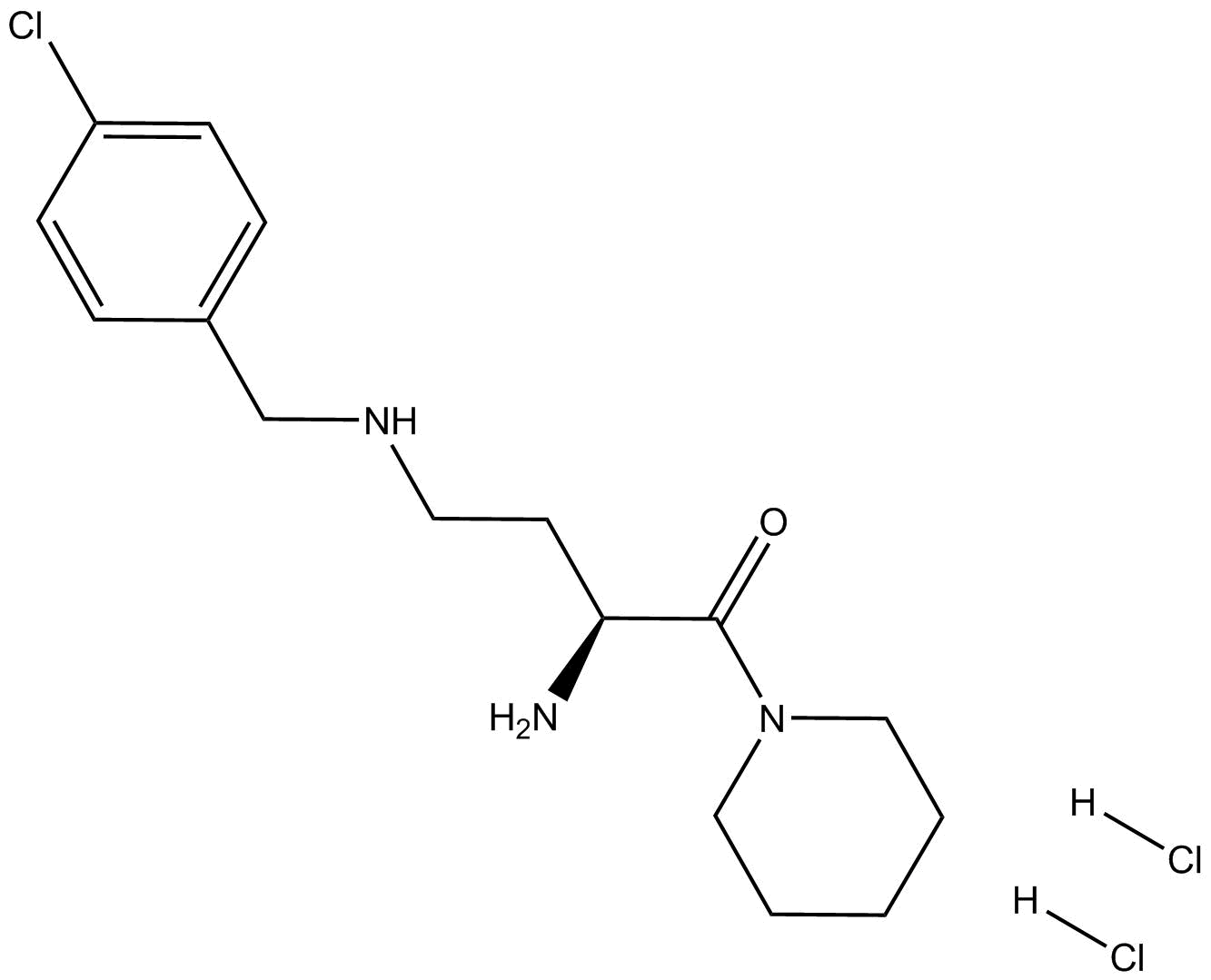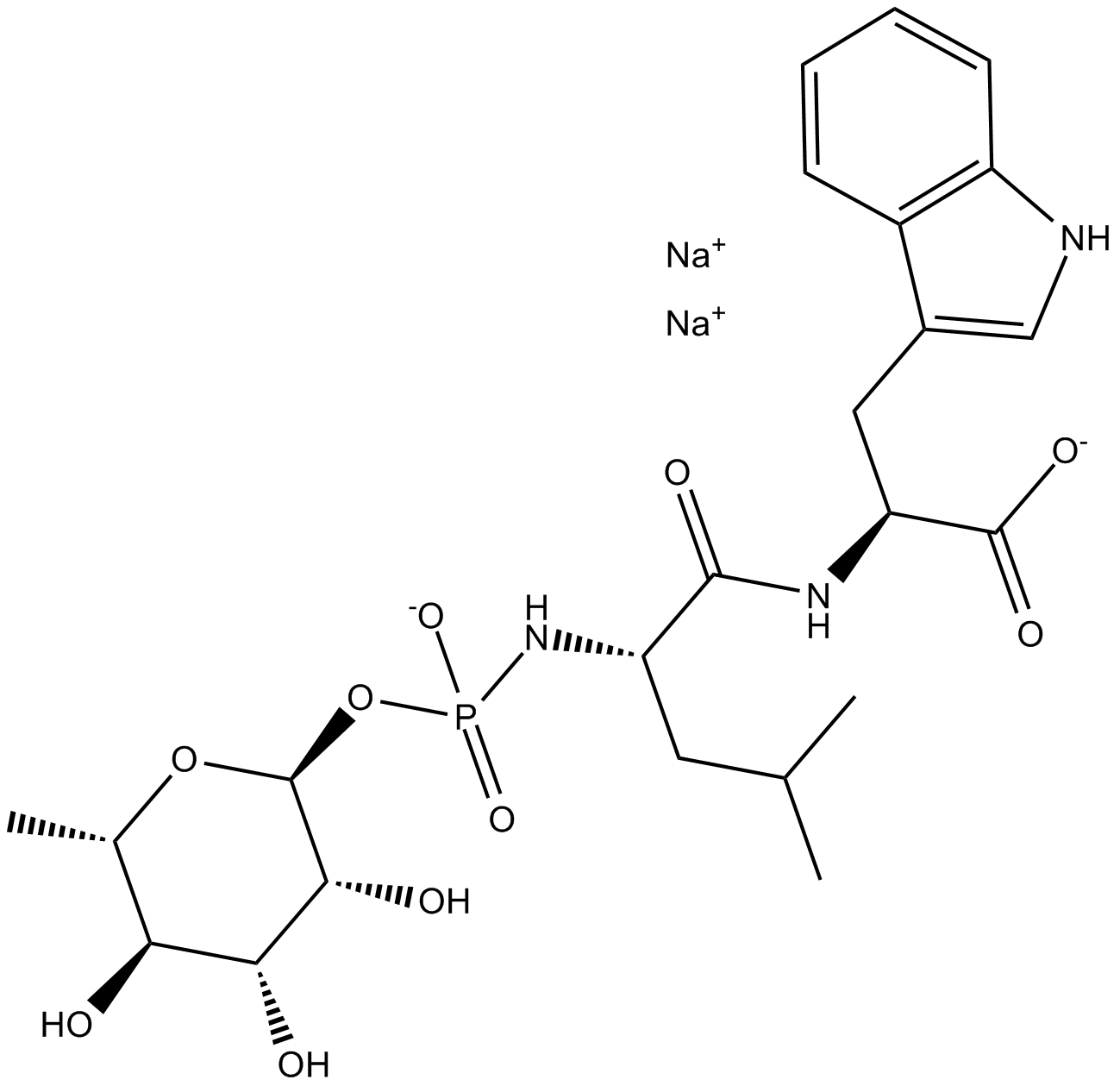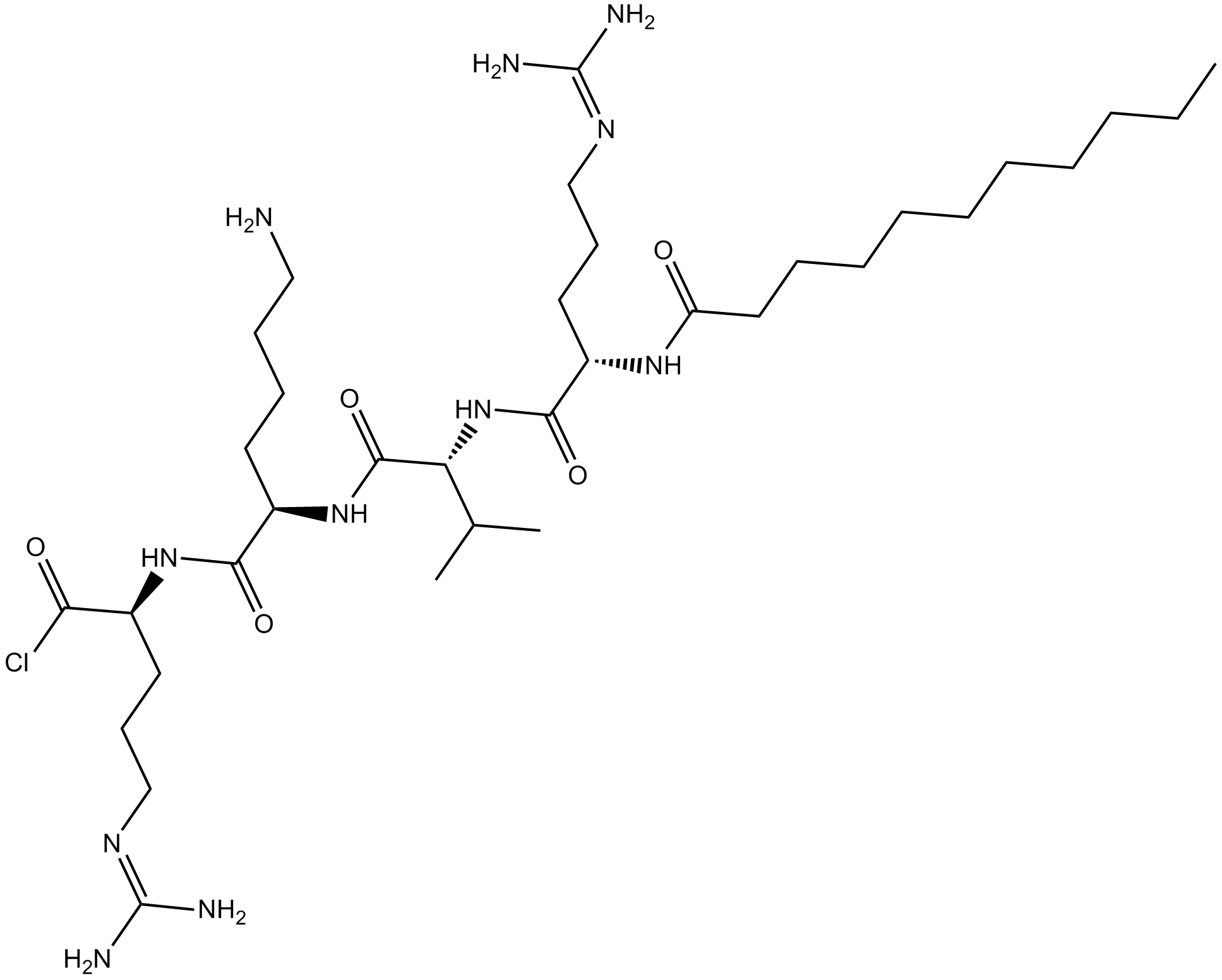Proteases
Proteases, also known as peptidases or proteolytic enzymes, consists of a large number of enzymes catalyzing the hydrolysis of peptide bonds and subsequently resulting in the degradation of protein substrates into amino acids. Proteases are involved in a wide range of human diseases, including cancer, neurodegenerative disorders, inflammatory diseases and cardiovascular diseases. Thus numerous proteases inhibitors (small molecules and proteins) have been identified to block activity of proteases. Proteases inhibitors can be classified into different types based on the class of proteases they inhibit through two general mechanisms, irreversible “trapping” reactions and reversible tight-binding reactions. Proteases inhibitors have been used as diagnostic or therapeutic agents for the treatment of proteases-related diseases.
-
 B5780 UAMC 00039 dihydrochlorideTarget: Dipeptidyl-peptidase IISummary: dipeptidyl peptidase II (DPP-II) inhibitor
B5780 UAMC 00039 dihydrochlorideTarget: Dipeptidyl-peptidase IISummary: dipeptidyl peptidase II (DPP-II) inhibitor -
 B4790 Phosphoramidon Disodium SaltTarget: metalloproteaseSummary: metalloproteinase inhibitor
B4790 Phosphoramidon Disodium SaltTarget: metalloproteaseSummary: metalloproteinase inhibitor -
 B5437 Decanoyl-RVKR-CMKTarget: Subtilisin/Kex2p-like proprotein convertaseSummary: Subtilisin/Kex2p-like proprotein convertase inhibitor
B5437 Decanoyl-RVKR-CMKTarget: Subtilisin/Kex2p-like proprotein convertaseSummary: Subtilisin/Kex2p-like proprotein convertase inhibitor

